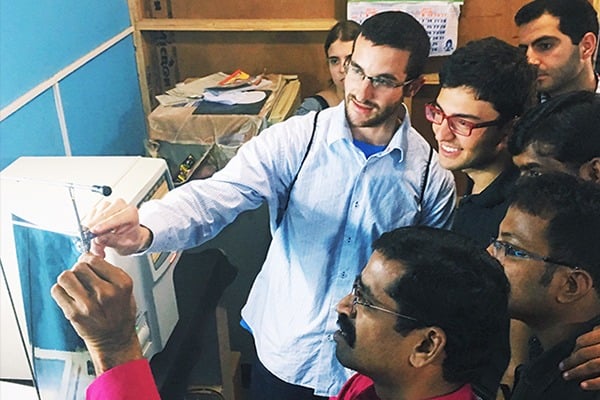Learning to Think Like a Clinician and Function Like a Startup

During his first year of medical school at the Johns Hopkins University, David Gullotti attended a retreat for Christian health care providers. There he mentioned that he enjoyed using his physics and engineering background to sketch device ideas that could improve patient outcomes, but he struggled to see a path forward, a way to get his ideas into the hands of clinicians. Fortuitously, an alumnus of the Johns Hopkins’ Center for Bioengineering, Innovation and Design (CBID) master’s program was at the retreat and suggested he look into the program.
So began the journey that took Gullotti from medical school at Johns Hopkins to clinics in India to May’s engineering graduation ceremony, then back to medical school. As his journey progressed, the master’s program evolved, too, which is apt for a program that champions an iterative process to design technological health care solutions to disrupt the status quo.
Through its unique pedagogical recipe, the CBID master’s program prepares students to be efficient and effective innovators by immersing them in the clinic and providing them with on-the-job training so that they experience every element of the design process in both high- and low-resource settings — all in one year.
Read the full story on Johns Hopkins Fundamentals.
